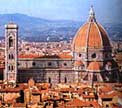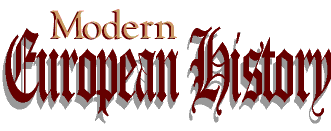
|


|
|
|
Mr. Sedivy's
More Features:
|
Highlands Ranch High School - Mr. Sedivy
- Modern European History
- Diplomacy Summary How War Came, The Immediate Origins of the Second World War, 1938 - 1939, by Donald Cameron Watt, is a comprehensive overview of the events and people in 1938 - 39 which led to World War II. Watt begins the book by describing the final days of World War II. The reader is introduced to Field Marshall Sir Bernard Montgomery - Monty - on May 4, 1945 at the signing of the German surrender at Luneburg and describes the similar scenes taking place all over Europe between the allies and defeated Germans. The reader is given a complete picture of the destruction of the war - art lost forever, gutted factories and leveled towns. Watt explains the impossibility of estimating the number of casualties and how the physical destruction of Europe was matched by the wreck of European society and governments as they had existed before the war. Watt begins to develop the causes of World War II by describing the First World War's role in setting the stage and Hitler's rise to power. The "unemployed" and defeated commanders of 1914-18 were naturally drawn to the many nationalist splinter parties such as the Nazis. Hitler took opportunities, such as the Reichstag fire, when they presented themselves and ordered his military to produce by 1938, armed forces so strong that he could use them to make German power felt all over world. Inflation and economic disaster were elevated by the stock market crash on Wall Street in 1929. Manchuria was occupied by the Japanese in 1931 and a year later Japan withdrew from the League of Nations. Hitler's first goal was to free Germany of all the restraints imposed by the Treaty of Versailles. He proclaimed rearmament of Germany and completed his purge by 1938. The Munich Agreement had stripped Czechoslovakia of her fortified frontiers, broke the Czechs into political blocks, while Hitler had already annexed Austria. Chamberlain persuaded Hitler to sign a declaration of Anglo-German friendship, September 1938. Chamberlain believed this would ensure friendship but before twelve months would pass Germany and Britain would be at war. Germany's absorption of Czechoslovakia and occupation of Prague, Mussolini's Good Friday invasion of Albania, and the September, 1939 invasion of Poland were just a few of the reasons Britain finally acted. Watt documents how all over the world things were happening at lightening speed. Japan was expanding quickly and the Japanese army was gaining control of the government. The army was insisting on a general alliance with Germany but the Japanese navy was determined not be dragged into a Pacific war because of Hitler's irresponsibility. There was constant warring going on among their own and tensions with Britain over the British concession in Tientsin. Stalin signing the Soviet-German Non-Aggression Pact heightened Britains determination to stick to their obligations to Poland. September 1, 1939, the sleeping city of Danzig was woken by the first explosions of the Second World War. Nations not directly involved had to wake up and consider the hard choices of what to do. Bonnet was desperately trying to figure out how to get out of the French commitment to Poland; Mussolini had his feelings hurt and had decided to be neutral for the time being; Stalin was playing Hitler's game in hopes of buying time against the day when Hitler remembered his ideological roots; and Roosevelt joined the group of ‘non-involved' European states and with the Pope hoped to prevent the final breakdown of peace through appeals. On September 3, at nine a.m. Britain presented Germany with an ultimatum; France delivered theirs at twelve noon. The battle lines for the second Anglo-German war had been drawn. Watt's Thesis In my opinion, Watt's argument is that the people involved in World War II are who made history, not necessarily the events. He feels that contrary to what some historians argue, the Second World War was willed to happen. By focusing on the players, he brings the humanity to history. He tells the story of how the Second World War began from the direct evidence left by those whose actions (and inactions) played a part in the beginning. He supports his argument by beginning with Wilson's behavior at Versailles and how he displayed obvious contempt for those who were to be his associates at the conference. The results of Versailles mentally set the stage for the need for another war. The most obvious player who willed the war was Hitler (who did not get the exact war he wanted). Watt describes Hitler's persona, his ability to manipulate those around him and, most importantly, his intense depression over the Munich Agreement. He wanted to invade Czechoslovakia; he wanted to be the ‘supreme War Lord of all time.' Watt makes you understand that Hitler willed, wanted, craved war and the destruction wrought by it. Watt focuses on the agony of Chamberlain during the last hours following the revolt in the House of Commons on September 2, 1939. He puts a human face to the extreme confusion and uneasiness of all of the players. It is through detailed descriptions based on, among many sources, personal conversations and excerpts from diaries, that Watt supports his argument by allowing the reader to feel as though he truly knows the individuals involved and sees how their behavior brought about the Second World War. Personal Review I found How War Came to be one of the most insightful and intriguing books that I have read on the causes of World War II. I would suggest the book to anyone, with a few disclaimers. Watt states that he has written this book for a more general, less academic audience but I feel that this book would be extremely complicated for any individual who did not have a solid history background of the preludes to the Second World War and who did not have a firm grasp on world geography. Watt is a British historian and his slant from a British perspective is obvious. This is not a criticism but an observation. The format which Watt chose for the book makes keeping events in chronological order difficult. His chapters are broken down according to events but because of his focus on the individuals involved, he gives a great deal of far reaching history pertaining to them. Hence, it can be difficult to get back to the point at hand without getting side tracked. This book takes time to read and it deserves undivided attention. The obvious extensive research which Watt did in preparing this book, makes it a pleasure to read. Sighting sources such as personal letters, excerpts from diaries and headlines from the times, makes the events and people so real that the reader feels as though they walked the streets during the Second World War. Bibliographical Information Watt, Donald Cameron. How War Came, The Immediate Origins of the Second World War, 1938-1939. New York: Pantheon, 1989. - Mr. Sedivy's Excellent Information - Sample Research Papers
Information for Students
Research Activity Mr. Sedivy no longer teaches geography, or Modern European History (non AP), but we've decided to leave his web contribution to these classes up anyway. The AP classes cover the same material, but in more detail. Advanced Placement Modern European History
|
Highlands Ranch High School ![]() 9375 South Cresthill Lane
9375 South Cresthill Lane ![]() Highlands Ranch, Colorado 80126
Highlands Ranch, Colorado 80126 ![]() 303-471-7000
303-471-7000
Mr. Sedivy's History Classes
| Colorado History | American
Government | Advanced Placement Modern European
History | Rise of England | World
History |
| Home | Back to top of page |
Site Contents |

